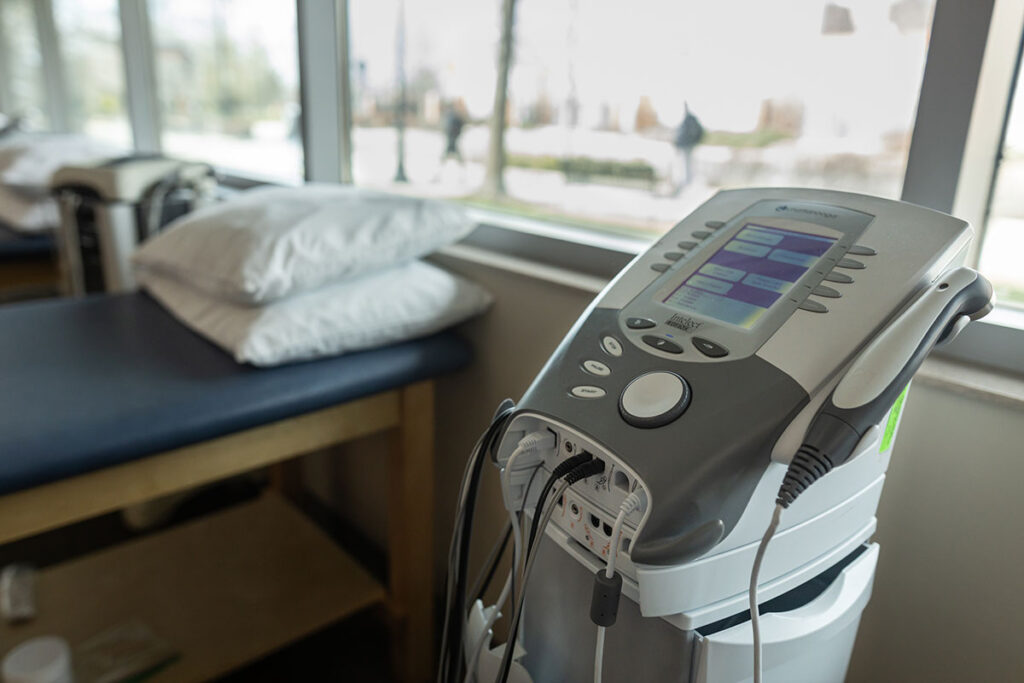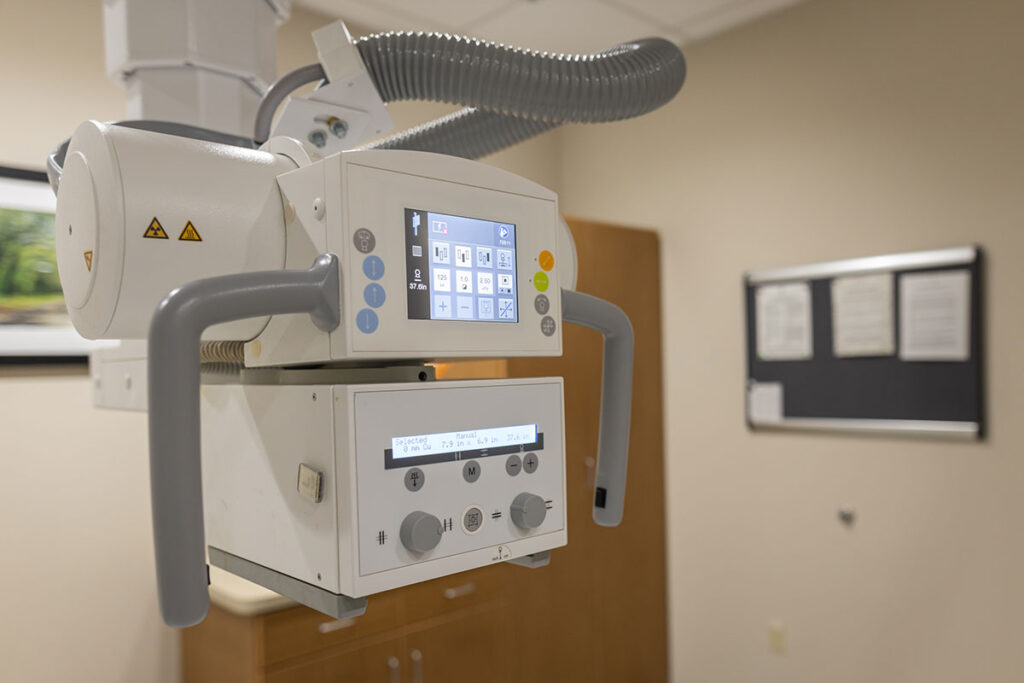In the 2022–2023 academic year, 10,836 students received care at the Student Health Center at a total of 26,452 appointments. The process for ensuring that every single one of those students receives the best care possible is an ongoing, self-monitored, and perpetual process.
The Student Health Center is accredited by the Accreditation Association for Ambulatory Health Care (AAAHC), a governing body that grants accreditation to clinics, community health centers, military health centers, oncology centers, and many other types of facilities. Through this body, accreditation is completed once every three years, or roughly every 1,095 days.

This compressed timeline, compared to a five-year cycle for most university departments and programs, means that center staff must implement an ongoing and rigorous self-improvement process to maintain accreditation but also to maintain standards of care for such a high volume of patients.
Accreditation through AAAHC or other governing bodies is an opt-in process that centers voluntarily submit to. Of roughly 4,000 universities located across the US, only about 2,000 have student health centers at all, with only 275 of those being accredited through AAAHC. In Tennessee, UT’s Student Health Center is the only accredited center in the entire state that serves university students.
Ultimately, this means that the Student Health Center is in an elite class providing excellent care to the student body.
The overall goal of the accreditation process is to improve the quality and safety of the care provided to the patient population by implementing policy and procedure changes recommended by an external reviewer. AAAHC has more than 800 standards that student health centers must follow and comply with to achieve accreditation, and each individual center’s review is tailored based on the scope of services provided at that location. For UT’s Student Health Center, around 600 standards apply based on the services offered. To be accredited, the center had to prove substantial or full compliance with all 600. And they did.
“Because this process is so detailed and in-depth, we begin preparing for the next accreditation cycle immediately after the current one concludes,” states Dr. Spencer Gregg, director of the center. “But each accreditation cycle is a unique experience, as standards of care are updated annually. So, every year whether we’re in an accreditation cycle or not, our policies and procedures are updated as well. This means that the care available continues to improve and adjust as needed but also ensures that the facility in which that care is provided is as safe as possible for students.”
Center staff conduct ongoing reviews of medical records, personnel records, incident reports, student complaints, and student satisfaction scores. Health care practitioners also conduct peer reviews of their colleagues’ patient charts and notes, ensuring that appropriate care is provided to each patient and that appropriate documentation is completed as well. The center also benchmarks its disaster preparedness for scenarios like tornado, fire, active shooter, or bomb threat against other student health centers to make the facility safer. When information in any one of these areas leads to an improvement in a care standard or process, staff implement that change immediately.
When all of these steps culminated and the re-accreditation cycle arrived in 2023, Gregg was out on medical leave with Dr. Rebecca Morgan in place as acting director. Gregg left a well-detailed foundational process for staff to follow in his absence. Morgan and others developed a team approach to working through each of the 600 standards and met for several hours each week leading up to the review, examining each standard page by page to assess what the center was doing to improve care and what examples were available to document and support that. The committee also organized a mock survey ahead of the AAAHC review to help identify any gaps in their documentation or processes.

“As a committee, the accreditation team divided and conquered in such a strategic way so that no team member experienced an undue burden during the process,” says Jill Zambito, assistant vice chancellor for health and well-being in the Division of Student Life. “There’s more learning in a process like this when more team members are able to contribute.”
One aspect of the review included submitting three quality improvement studies to demonstrate areas where the center had improved and continually aims to improve internally, independent of a review cycle.
The three quality improvement studies submitted were in the areas of early intervention for hypertension to reduce significant health events, COVID-19 community health intervention, and physical therapy care, which included an external benchmark with another prominent SEC school that highlighted UT’s superiority and excellence in providing this specific type of care. These quality improvement studies were based on both internal benchmarks where the center measured against itself as well as benchmarking against other student health centers.
The Student Health Center review included inspection of written standards and policies but also inspection of physical spaces, in-depth interviews with health practitioners, and stringent review of care practices and patient notes. The Student Health Center’s peer review process was also inspected.
“It’s not just about the doctors, it’s about the entire department operating with excellence to provide care to every single student in their hour of need, helping them meet their goals for well-being, health management, and medical decision-making,” says Zambito.
The AAAHC review categorized many procedures of the Student Health Center as a best practice that should be implemented at other institutions. Insights gained from this accreditation process at UT will be shared with other student health centers as they undergo the accreditation process in the future. And, the recommended changes found during the review are already being put into place.
“Why do we do this review every three years?” asks Dr. Rebecca Morgan, sports medicine specialist and one of the team leaders for the accreditation committee. “It’s to see if health care is changing, if positions are changing to continue providing a high quality of care. As the student population changes, so do their needs. So we have to change, modify, and reset standards to ensure we’re providing the care they need.”
One particular area of pride for the Student Health Center is the continually high patient satisfaction rates. Each student served at the center is invited to complete a satisfaction survey to share their experience receiving care and include any information about how their experience could have been better. While medical professionals tend to focus on what goes wrong in a situation or on negative health outcomes, the student body is extremely satisfied with the care received at the Student Health Center. From the front-line team member greeting students who enter to the staff cleaning the floors to the health professional providing patient care, satisfaction scores were extremely high across the board.
The accreditation team included
- Debbie Blair, Business Manager
- Darrell Brackett, Associate Health Center Director
- Stacie Dixon, Nursing Supervisor and Safety Officer
- Becky Morgan, Sports Medicine Physician
- Carman North, Community Health Team
- Todd Webb, Laboratory Supervisor
The AAAHC review categorized many procedures of the Student Health Center as a best practice that should be implemented
at other institutions.